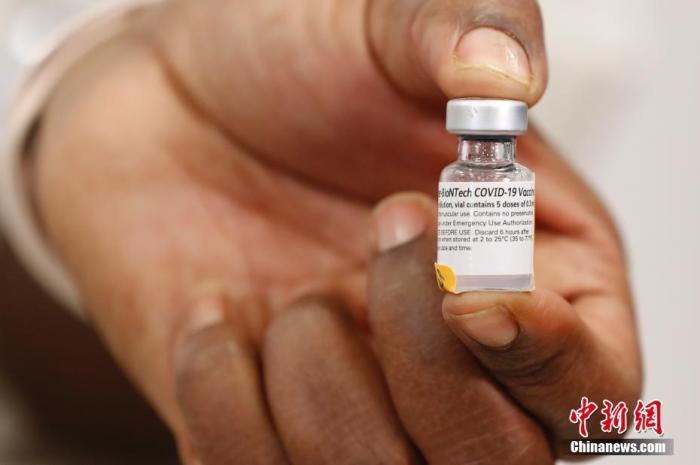China News Service, May 10th. After the United States suddenly announced its "support for abandoning the protection of intellectual property rights for the new crown vaccine", some Biden administration officials have new anxiety.
They worry that this move may "promote biopharmaceutical technology in China and Russia."
Screenshot of Reuters report.
According to a Reuters report on the 9th, some US officials and industry insiders are worried that the Biden administration’s move will enable China to "skip years of research", thereby weakening the US advantage in the biopharmaceutical field.
An official in the Biden administration also stated that although the primary task under the epidemic is to save lives, “the United States will review the impact of this move on China and Russia before the patent exemption takes effect to ensure that it meets (US) purposes. "
The report pointed out that a document produced by the U.S. government also admitted that the government is concerned that intellectual property sharing may harm the U.S.'s competitive advantage over China.
According to sources, the Biden administration believes that these issues can be resolved through WTO negotiations, but did not specify.
At present, the White House spokesperson and the Office of the United States Trade Representative have not yet commented on this matter.
However, the analysis believes that since China and Russia also have patents for new crown vaccines, China and Russia may also be one of the contributors to the patent exemption.
On the other hand, there are still many uncertainties in the specific implementation of the issue of abandoning vaccine patents. The United States should first consider how to advance this action.
According to regulations, to temporarily suspend the implementation of specific provisions related to the protection of intellectual property rights of the new crown vaccine, the unanimous agreement of 164 members of the WTO is required, and this process may be time-consuming and lengthy.
Even if the government mandates it, if the original factory actively teaches the vaccine production method, it will be impossible for other countries and pharmaceutical companies to replicate the production.
On December 14, 2020, local time, a nurse at the Jewish Medical Center in Long Island, New York demonstrated the first batch of new coronavirus vaccines in the United States.
On the same day, Pfizer's first batch of nearly 3 million doses of the new crown vaccine arrived in the United States.
Photo by China News Agency reporter Liao Pan
A few days ago, in an open letter, the CEO of Pfizer, Albert Birla, publicly “against the Biden administration”.
He said that "abandoning intellectual property rights will not improve the supply situation, but will create more problems". It will not only "disrupt the circulation of vaccine raw materials, but also discourage the innovation enthusiasm of small biotech companies."
Reuters quoted James Pooley, the former deputy director general of the World Intellectual Property Organization, as saying, "What happens when the U.S. cannot provide the information essential to the implementation of these technologies?" The answer may be, "This will be seen as Because the United States and other rich countries have failed to fulfill their promises again."

